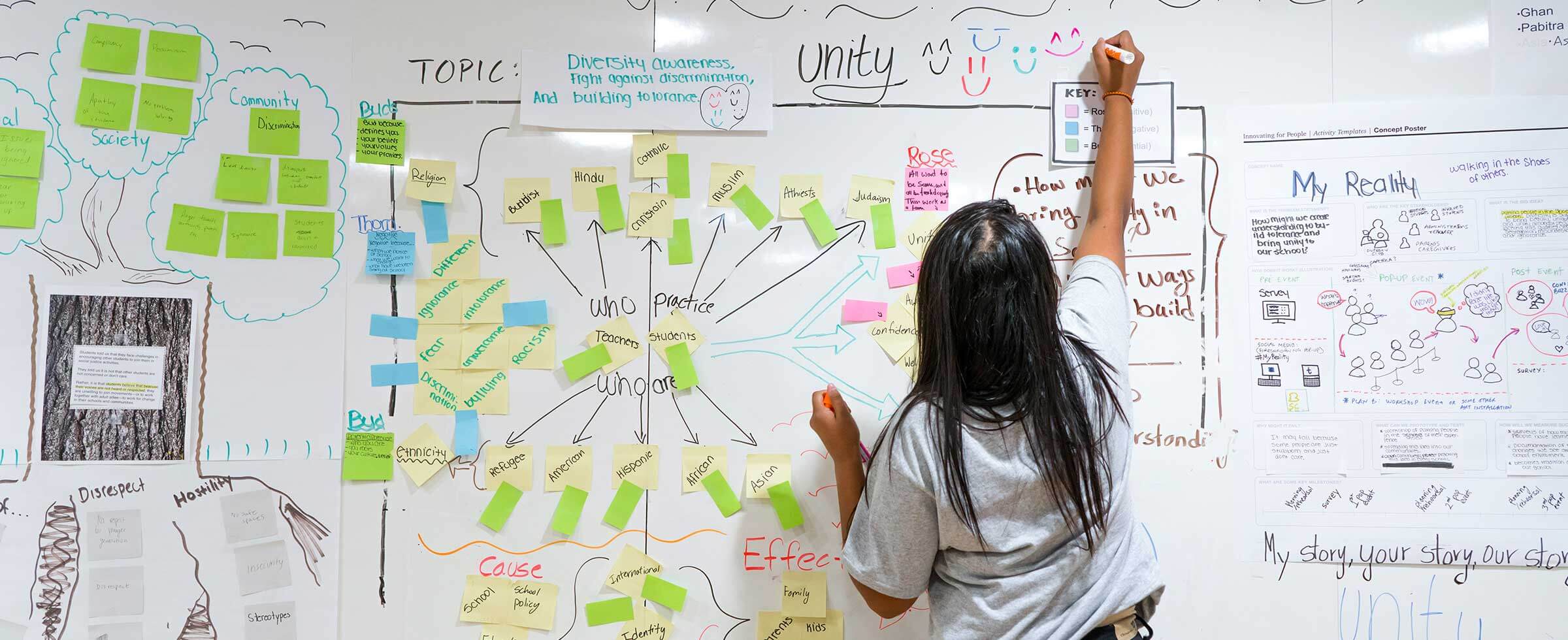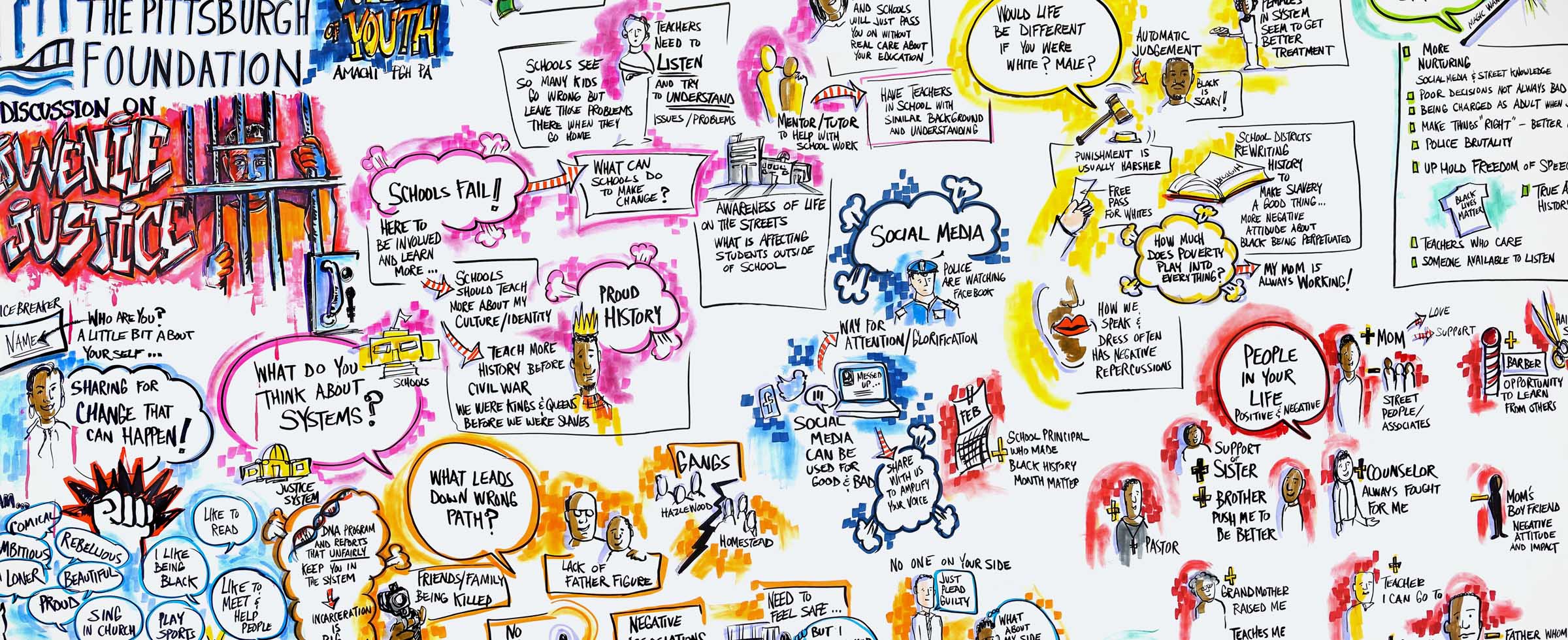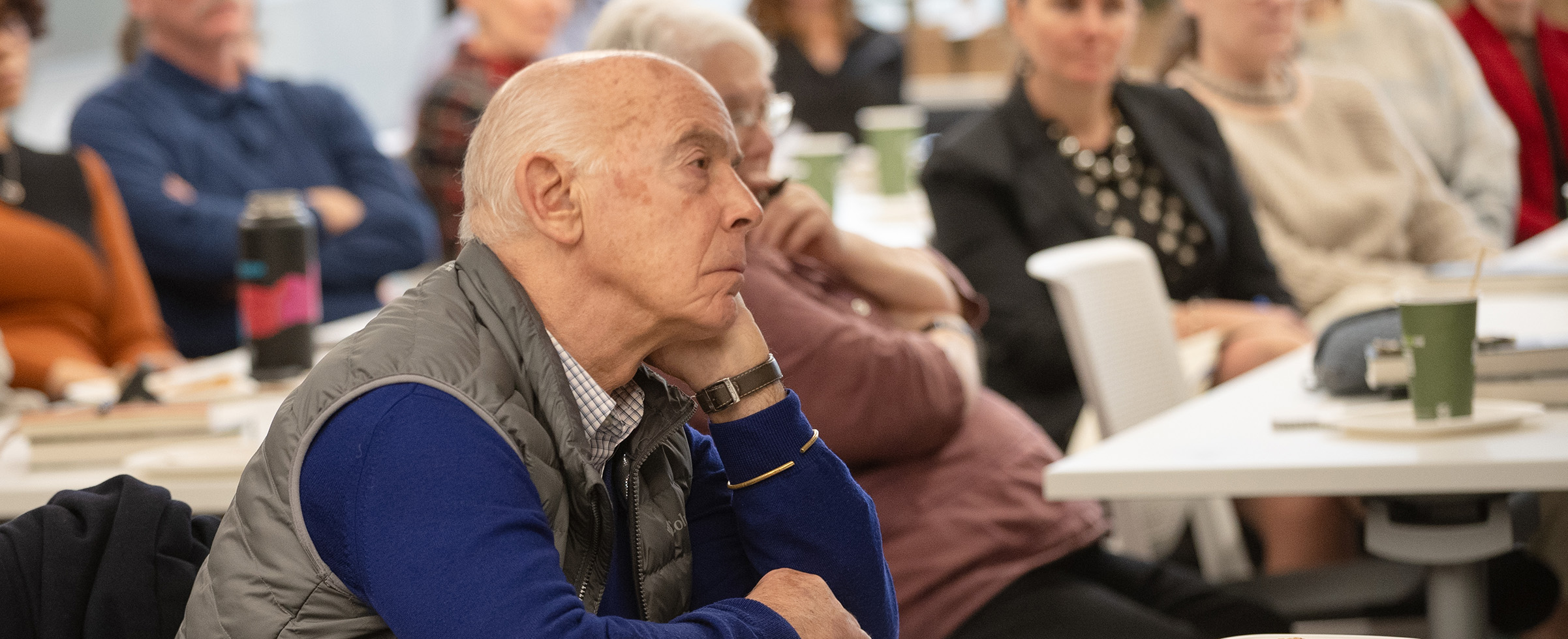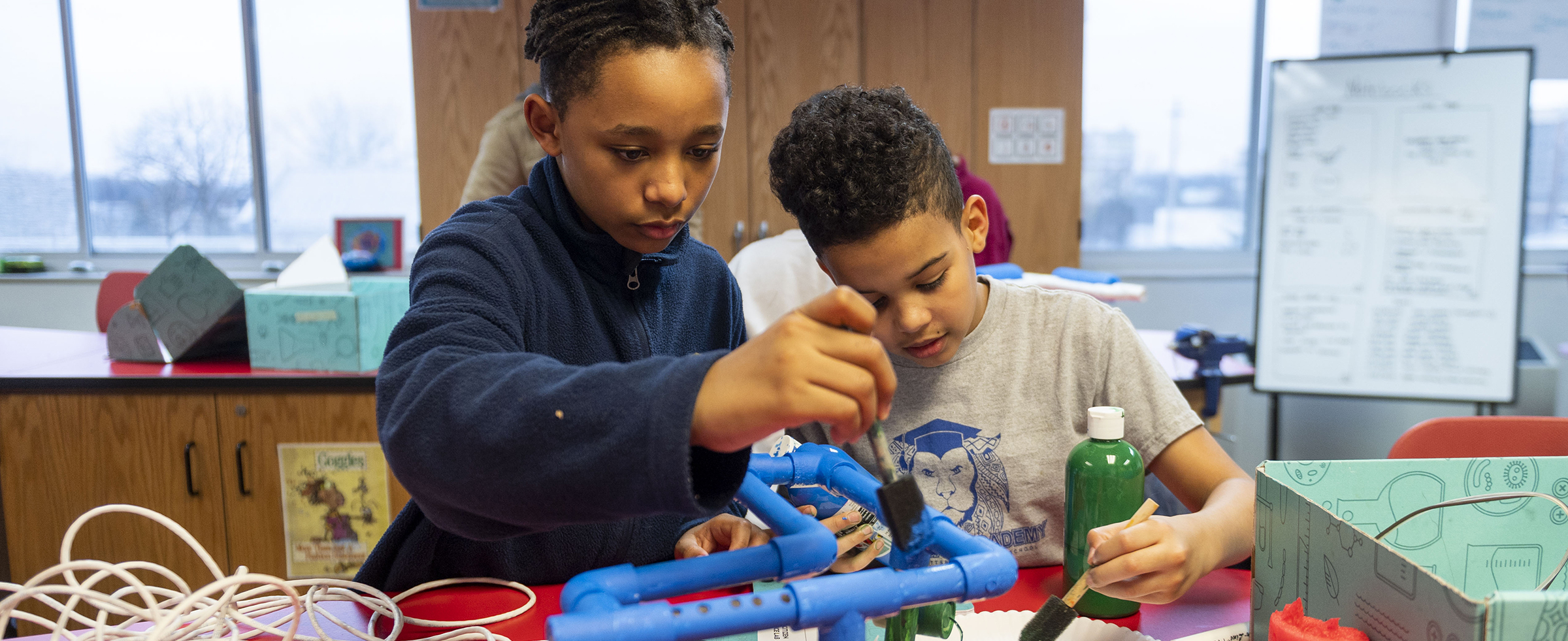
As it threatened people, COVID-19 also posed a threat to child care and out-of-school-time programs, which had been financially anemic even before the crisis. They were included in shutdown orders issued in the early days of the pandemic, and some never reopened. Those that did confronted staffing shortages, low enrollment and new costs for masks, sanitizer and other protections from the virus.
With tuition down and expenses mounting, child care programs, especially smaller operations serving Black, Indigenous and People of Color (BIPOC), struggled. To continue serving children, they innovated to secure new revenue sources.
The Pittsburgh Foundation’s Center for Philanthropy and Program teams bolstered those efforts last year by matching interested donors to specific programs. Corporate and individual donors responded to the urgent need: Child care is the backbone of the economy, allowing employees, especially women, to return to work. Lack of child care was a major factor that drove an estimated 3.5 million women out of the workforce in 2020. While some child care services returned last year, there were long waitlists and many women continued to stay home.
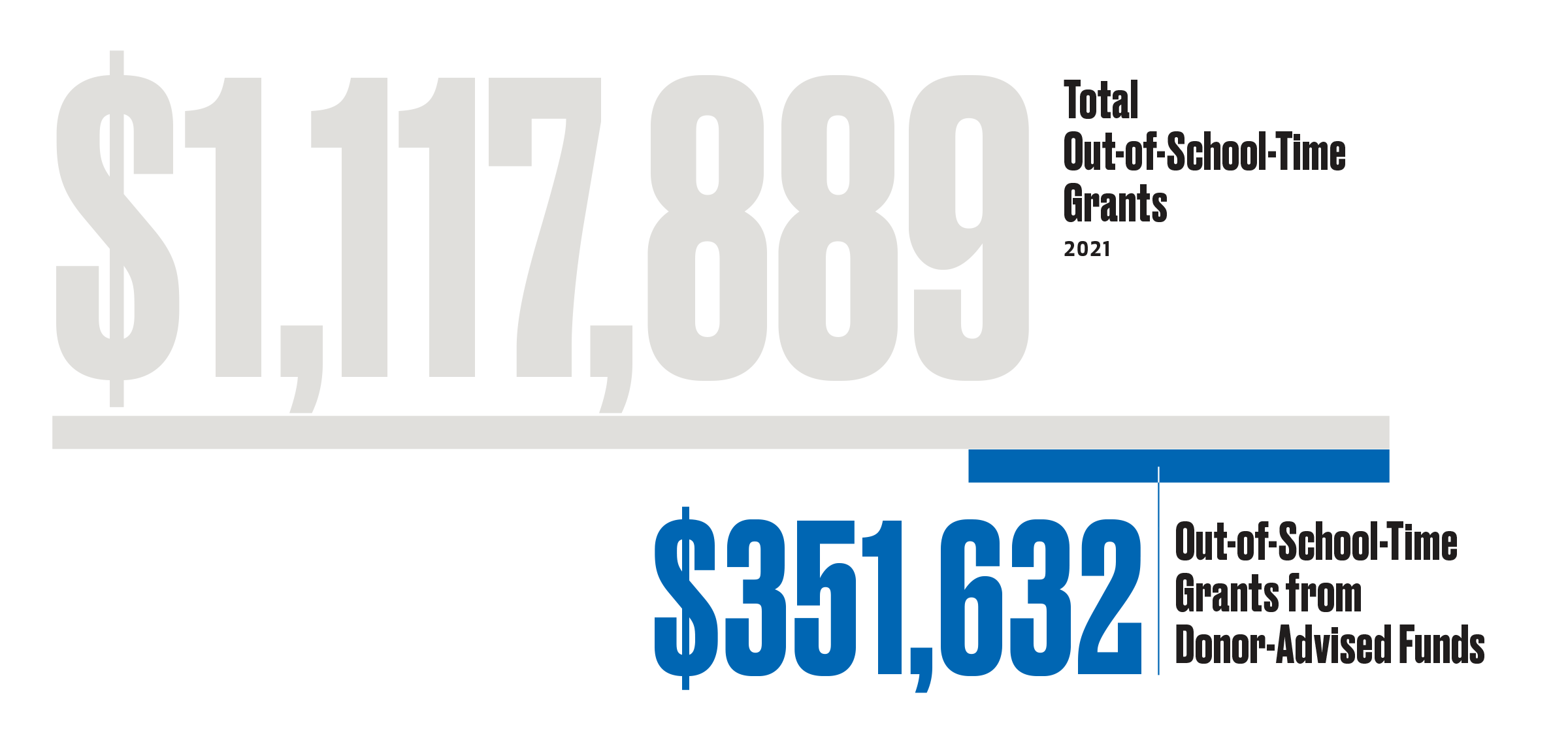
To explain what is at stake for children and families in city neighborhoods such as Homewood and the West End, Center for Philanthropy staff conducted a virtual webinar for potential donors. Leaders of three out-of-school programs, H.O.P.E. for Tomorrow, STEM Coding Lab and the Maker’s Clubhouse, explained how providing nurturing supervision from 3 to 6 p.m. daily keeps children academically engaged, safe and out of the criminal justice system.
These programs also served as lifelines for working parents when schools went remote, converting to all-day learning hubs where students could plug into classes and receive three meals. These extended hours meant the programs had to cover higher staffing, utility, internet, transportation and food costs. The centers’ leaders, who have close relationships with parents and guardians, also delivered food to families in need and referred them to social services. “They are like community centers,” Kelly Uranker, vice president of the Center for Philanthropy, explains.
Out-of-school programs also offer enrichment opportunities such as computer science and 3D printing, which are not available in many schools. “They are a tool for education equity, providing extended learning opportunities that students wouldn’t ordinarily have access to,” says Jamillia Kamara, program officer for Education at the Foundation. “These students tend to be Black and Brown and from economically insecure environments. Through their participation in out-of-school-time programs, students have the opportunity to work with staff and embrace their strengths, learn and grow.”
While the out-of-school-time programs are usually free, child care can be prohibitively expensive, especially for families living at the margins. “Child care is one of the largest expenses for families; it can cost more than rent,” says Chris Ellis, the Foundation’s program officer for Healthy Children and Adults.
Corporate donors, young benefactors and others responded with generous contributions last year. A stand-out example is Schell Games, the educational video game developer headquartered in Pittsburgh. Center for Philanthropy staff presented a giving group program for Schell employees. Attendees learned about various nonprofits with pressing needs and gave $10,000 to child care and out-of-school programs.
Because of such generous donors and recognition of the need for these programs, The Pittsburgh Foundation has increased giving 15-fold since 2017.
Young donors step up
When The Pittsburgh Foundation’s New Philanthropic Leaders met in June to brainstorm about where to channel their resources in 2021, the young professionals decided to focus on education through the lens of racial justice by supporting out-of-school-time programs. The 13 members, all between the ages of 22 and 40, are contributors to the New Philanthropic Leaders Fund. Each gives $1,000 a year (matched by the Foundation) toward building a region in which everyone has opportunities to thrive. Members visited out-of-school programs that provide safe and enriching environments for children in economically struggling neighborhoods, then chose three finalists. They were: 1Nation, a mentoring and youth development program for African American students; Bible Center Church, which runs a maker’s clubhouse in Homewood that focuses on science, technology, engineering, art and math (STEAM); and ARYSE, the Alliance for Refugee Youth Support and Education, which serves immigrant children in Allegheny County. All three organizations also received Foundation-directed grants. The New Philanthropic Leaders invited their families and friends to attend a virtual pitch event with the finalists. Participants made a $20 donation to one of the three nonprofits. Altogether, 1Nation received about $15,000, and the other two nonprofits each received almost $13,000. For Shaun Wickett, a 28-year-old software engineer at Amazon in Pittsburgh and a New Philanthropic Leader, the experience was more rewarding than simply writing a check. He enjoyed learning about the programs because “childhood is one of the most formative times. It’s when kids develop and become who they are.”
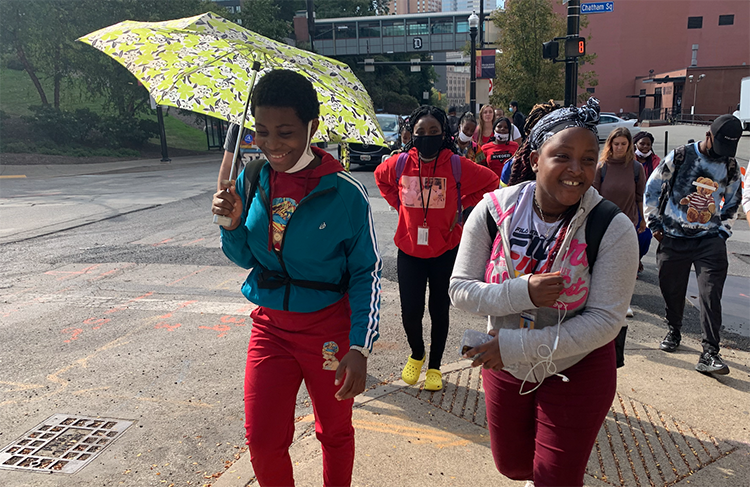
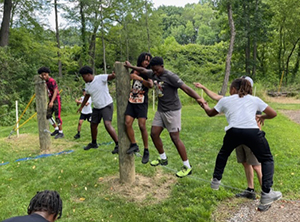
(Photo credit: Nate Smallwood).
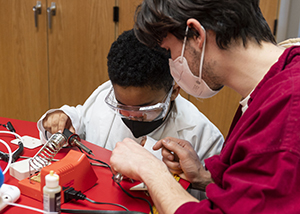
component for an underwater robot. Struble has a Master of Science from Duquesne University and is pursuing a career that combines his love of science and his passion for teaching. At Citizen Science Lab, he enjoys passing along his knowledge and seeing
students’ eyes light up as they begin to understand the process of scientific discovery.
(Photo credit: Nate Smallwood).
Original story appeared in the 2021 Report to the Community. | See archive of print publications.

